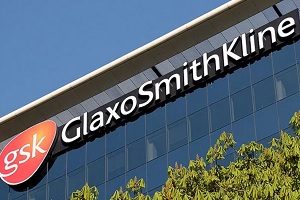
Glaxo Drug May Cause Heart Attacks. Two North Carolina patients have sued GlaxoSmithKline claiming its diabetes drug, Avandia, caused their heart attacks. Hundreds more are seeking compensation for health problems they experienced after taking Avandia. The patients blame Glaxo for not adequately warning of all of the pill’s cardiovascular risks. Glaxo “knew of these dangerous […]

Glaxo Drug May Cause Heart Attacks. Two North Carolina patients have sued GlaxoSmithKline claiming its diabetes drug, Avandia, caused their heart attacks. Hundreds more are seeking compensation for health problems they experienced after taking Avandia. The patients blame Glaxo for not adequately warning of all of the pill’s cardiovascular risks.
Glaxo “knew of these dangerous effects in Avandia from the many trials which they performed and to which they had access and from their own analysis of these studies,” the lawsuit reads. “But took no action to adequately warn or remedy the defects, but instead concealed, suppressed and failed to disclose these dangers.”
The lawsuit also claims that doctors and patients didn’t have the information they needed to assess Avandia’s risks and that Glaxo sales representatives minimized Avandia’s side effects.
Also according to the lawsuit, one patient involved took Avandia from April 2006 until she was admitted to the hospital because of a heart attack in February 2007; she has since developed congestive heart failure. The other patient took Avandia from 2000 to 2007; in 2002 she suffered a heart attack and required triple bypass surgery.
A study published in May 2007 by the New England Journal of Medicine revealed data linking Avandia to an increased risk of heart attack. Since the report’s publication, Avandia prescriptions dropped over 50 percent.
Avandia, which has been on the market since 1999, has long carried warnings of its cardiovascular side effects, such as an increased risk for congestive heart failure and Glaxo has known about concerns over Avandia’s heart attack risks since at least 2004; however, the heart attack risk was not mentioned in Avandia’s packaging information until November.
The FDA raised existing warnings about congestive heart failure after the New England Journal’s publication triggered a congressional inquiry.
Meanwhile, according to researchers recently comparing the results of two diabetes trials, weight gain, the use of multiple drug combinations, and even lowering blood sugar too low, too fast may have been factors in causing early deaths.
Both trials, one conducted in the United States and Canada, the other in Australia, were designed to measure the benefits of using drugs such as Avandia to dramatically lower blood sugar in diabetes patients.
The trials followed over 21,000 diabetics, using multiple drugs—including Avandia. While cutting kidney disease in one trial, the treatments—which included Avandia—failed to protect diabetics from heart disease and stroke in the second.
Avandia was given to 90 percent of the intensive therapy group in the second—Accord—trial. Both studies, the largest ever for diabetes, were recently published by the New England Journal of Medicine.
The US trial, called Accord, was stopped in February when researchers found patients were more likely to die with aggressive treatment, which included the controversial diabetes medicine, Avandia. The most frequently used drug in the two trials was Avandia.
In April, the FDA issued a warning to Glaxo for not reporting safety results on Avandia saying that between 2001 and 2007 GlaxoSmithKline neglected to update the FDA on over 10 ongoing Avandia studies, as required by regulations.
The personal injury attorneys at Parker Waichman LLP offer free, no-obligation case evaluations. For more information, fill out our online contact form or call 1-800-YOURLAWYER (1-800-968-7529).
Our Avandia Controversy law firm is here to help you when you need it the most.


